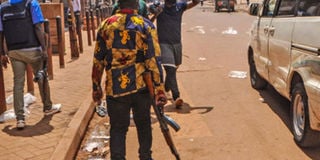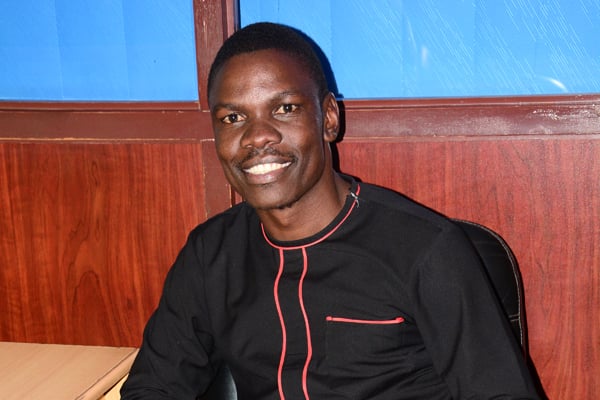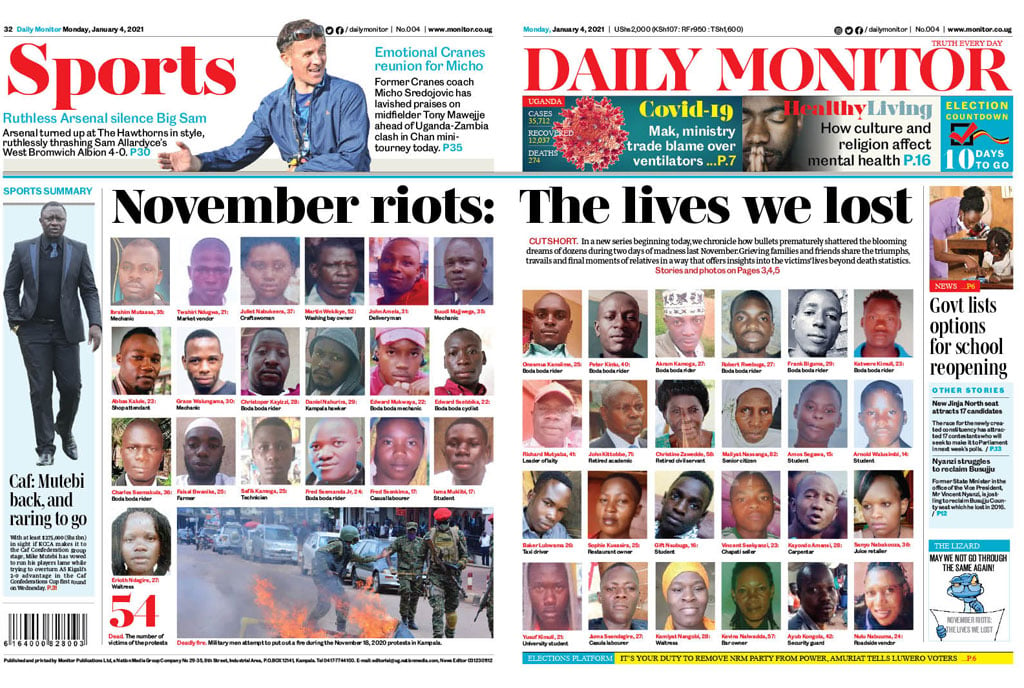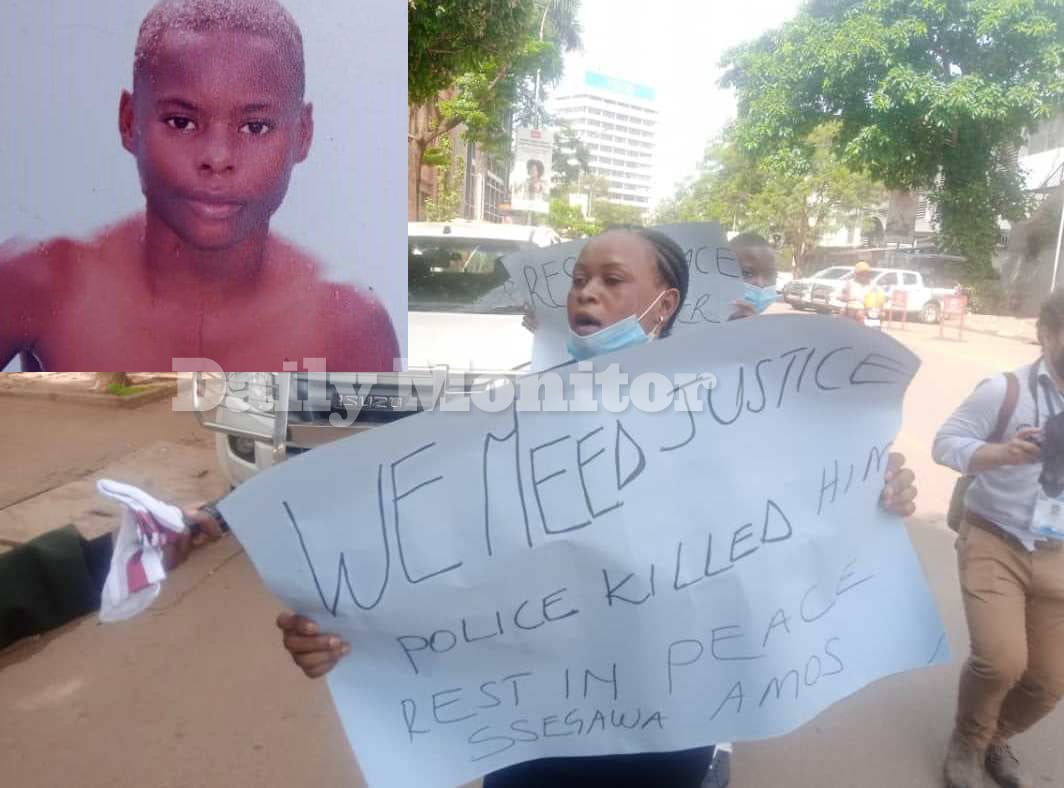No accountability one year after deadly riots left scores dead

Armed men in plainclothes patrol downtown Kampala on November 19, 2020 after protests broke out for the second day following the arrest of then-presidential candidate Robert Kyagulanyi, alias Bobi Wine, in Luuka District Photos | File
What you need to know:
- Save for the bomb scare that engulfed parts of Kampala, Thursday last week went largely uneventful on the day that was meant to mark the first anniversary of last November’s violence that left more than 50 people dead and dozens injured by police, the military and a motley gang of security operatives dressed in civilian attire as they quelled spontaneous protests that broke out following the arrest of then presidential aspirant, Robert Kyagulanyi. For the most part, government has been indifferent about the matter, Frederic Musisi and Derrick Wandera write.
Anybody who survives after being shot is considered lucky to be alive. According to a New York Times article on gunshot wounds published in April 2008, when the major organs; the heart, the brain, and especially blood vessels are missed, there are chances of survival.
Twenty-year-old Masudi Luzige is lucky to be alive. The National Unity Platform (NUP) supporter, was shot twice on the evening of November 18, 2020, the day spontaneous protests broke out in various parts of the country following the arrest of then NUP presidential candidate, Robert Kyagulanyi, in Luuka District, eastern Uganda for flouting Covid-19 prevention guidelines.
“I was going back home,” Luzige recounted. “There was a patrol car parked by the road that leads to my home (in Nakifuma, Mukono District). I had just walked past it when one of the officers stopped me. As I turned back, I heard some sounds, then a bang. The next moment I was unconscious and staggering. Then a second bang.”
The first bullet tore Luzige’s lower jaw—almost ripped it off, the second entered through the back and exited near the left side of his heart. “Immediately the patrol sped away,” he recalled.
The neighbours, who heard the gunshots and screams took to the scene; and Luzige was taken to a nearby clinic, where he received first aid.
But owing to the gravity of the wounds the clinician, as the norm, called in police to evacuate him to a bigger hospital.
“I was bleeding profusely; I could feel life draining out of me. The police was all over the place, I think, hoping that I could bleed to death. If there were no other suspects who had been arrested that evening I think they would have killed me and dumped my body somewhere else,” he said.
Luzige was admitted to Mulago hospital, where he was moved from one ward to another, which took a financial toll on his family.
It was not until February that the NUP leadership came to his rescue for advanced treatment and surgery to repair his disfigured face at a private facility.
Why would anyone want him dead? Earlier that day, he had participated in the protests against Mr Kyagulanyi’s arrest but he maintained they did not do anything illegal. He suspects that this is why he became a marked man.
The moment he was shot, as frightening and painful as it might have been, marked a new beginning—from financial distress to paranoia to being left with a disfigured face. Luzige had to wear a mask from dawn to dusk for the past months.
Stories have been abound detailing the pitiable lives of many victims of the November 18 and19 protests.
Shamin Nabirye was shot at Banda, near Kyambogo from a car that is clearly identifiable as one of those used by police VIPs.
Nabirye lost her pregnancy; doctors further recommended advanced treatment, which she cannot afford.
Barely 500 metres from where she was shot, is a police camera that could under normal circumstances have provided good leads about the errant security personnel who targeted her. The raw footage of Nabirye’s shooting indicates she was not rioting.
Indifference meets impunity
According to police’s 2020 annual crime report, the CCTV system was installed in 2018 as part of President Museveni’s 12 key points to fight the high crime rate.
This was a policing tool during the protests—captured rioters destroying property, burning tyres on roads and looting, and undressing women in yellow.
“Many suspects involved were apprehended using the critical evidence from CCTV cameras,” the report notes.
Those are the videos President Museveni called to be played—first in his address nine days after the protests and during the address on the security situation in the country in February this year— but footage showing security forces dressed in civilian shooting indiscriminately at buildings and civilians, was not aired.
Observers proffer that the same CCTV footage could have been used to bring to book trigger-happy security operatives who killed civilians. According to police’s own findings, at least 49 people, out of the official body count of 54, died from stray bullets.
Police spokesperson Fred Enanga told journalists at the weekly press briefing last Monday that investigations are ongoing.
“The best evidence regarding a stray bullet is when you find a bullet head remains lodged in the body of the victim. It can help you to trace back the gun that fired the bullet” which was not in this case,” he said.
In his first address on the matter on November 28, 2020, President Museveni scoffed at protesters he claimed are lapdogs of foreign forces whose agenda is to fan the flames of violence. He later criticised the clumsy handling of the riots.
“Police should audit the issue of killing people by stray bullets. What was the original purpose of the bullets that strayed? The phenomenon should be audited. Even if you don’t have anti-riot equipment you can ably control a riotous situation while firing in the air. With firing in the air, there can’t be stray bullet because by the time the bullet falls on ground it has lost strength,” Mr Museveni said.
In the subsequent address on the state of security on August 14, Mr Museveni said it is unacceptable for security personnel to kill anyone.
“In the November riots, some of the people killed were rioters but in some cases, there were stray bullets but what were you aiming at? After scrutiny, the report will be made available to the public,” he said.
“There should be no killing of any Ugandan for any reason apart from if you are condemned by the court of law to be hanged. Do not damage our legitimacy, history and achievements. Our human rights record is incomparable to anyone in the world. This was one of the main reasons why NRM/A went to the bush and fought from 1971.”
Security sources say the report into the November protests has been ready for many months now.
In the August address, Mr Museveni criticised security agencies for using torture and abuse of human rights, having lauded them for the same previously.
He berated key western allies, the United States and European Union, for suggesting targeted sanctions against senior police and military officials accused of egregious human rights violations.
Information ICT and National Guidance minister Chris Baryomunsi told Daily Monitor that government remains committed to accountability.
“Those who were caught on the wrong side of the law have to be tried through the due legal processes, and that is accountability. We are talking about due processes that must be seen to workIf here are some security officers who were errant, and exhibited some excesses, the law will take its course…too,” Mr Baryomunsi said.

Protesters walk with their hands up on Rubaga Road in Kampala on November 19, 2020.
State of violence
Former presidential candidate Bobi Wine told Daily Monitor in an interview last week that the President’s flip-flopping is a futile attempt at political correctness.
“I knew the regime was up to something terrible, however, in the beginning they seemed to have a certain level of shame when they killed one or two or three people here and there, but not in full glare of the public. That is why we avoided many of the traps they laid and we said from the beginning that we were non-violent,” he said.
Genesis
November 18, 2020 started like any other day. A calm haze settled above Kampala portraying a false impression of the rancour that peppered the high octane presidential election campaigns pitting the incumbent in power since 1986 against Mr Kyagulanyi.
Both candidates were campaigning miles away; the incumbent in Karamoja in the north east, and Mr Kyagulanyi in the Busoga Sub-region, eastern Uganda.
After a series of warnings about flouting Covid-19 prevention guidelines, including prohibition of gatherings, police arrested Bobi Wine mid-morning that day.
The early morning quiet belied what would unfold later. In spontaneous acts that broke out at noon, supporters of Bobi Wine barricaded roads as news of his arrest filtered across the city.
As police engaged in running battles with the protesters, and seemingly overwhelmed, military reinforcements joined in, including a motley gang of security operatives dressed in civilian attire, who were captured in videos shooting randomly at crowds.
“Of course, people had been protesting from day one of our campaigns and the way they were treated was always telling,” recollected Bobi Wine in an interview last week. “I expected people to always protest; what I didn’t expect was such response.”
Bobi Wine said the signs of what unfolded in November first appeared two years earlier when his driver Yasiin Kawuma was shot dead on August, 13, 2018 by the Special Forces Command (SFC) during the by-elections in Arua.
This was followed by the other incidents where NUP supporters were deliberately targeted.
Mr Kyagulanyi said: “What happened that day was a massacre. It wasn’t entirely surprising but one cannot come to terms with how a sober human being posing as a leader can turn on his own people like that.”
Bobi Wine denies that the protests were planned as police claimed. He also denied what some critics have accused him of; that he hoped for an archetypal Arab-spring insurrection with hope that Western powers would intervene like it did happen in Libya.
“We did/do everything not hoping to be saved by anyone other than ourselves. But it is not farfetched to imagine that the international community would be disturbed by the actions of their business partner,” he said. “That is why we took Gen Museveni and his son [Lt Gen] Muhoozi to the International Criminal Court.”
Human rights activists in December, filed a suit against the Israeli government in Tel Aviv seeking orders to revoke the Israeli ministry of Defence’s arms export licence for the Galil-Ace and Tavor assault rifles to Special Forces Command (SFC), a semi-independent unit of the UPDF that guards the president, his family and other strategic installations in the country.
Rights activists
The activists in the petition accused the SFC of shooting civilians during the two-day protests and kidnapping the Opposition, especially NUP supporters in the days that followed until the elections. The Israeli court issued gag orders against the case this February.
In the aftermath of the protests, security agencies without name tags and driving in numberless vans, nicknamed ‘drones’ embarked on kidnapping Opposition supporters who were held incommunicado, leaving families and relatives in distress.
Bobi Wine says dozens of their supporters remain unaccounted for, while hundreds are languishing in jail. Many of those who returned to their families during the past months bore visible scars of torture.
NUP’s commemoration of the November riots on Monday last week was attended by emotionally distressed relatives whose loved ones are still in incarceration or “disappeared.”
During his security address in February, President Museveni gave orders demanding that individuals still in military and police incarceration be freed or their identities and whereabouts publicly disclosed so that the raging debate about kidnaps and disappearances of civilians by security personnel “goes away”.
But almost 10 months after the directive, the security forces have made no disclosure in a way that suggests they have, for now, decided to ignore the Commander-in-Chief’s orders.
During a news conference last Monday, Mr Enanga said they arrested 1,035 suspects of which 901 were charged and 734 remanded after the protests.
He also indicated that he is not answerable for the slow processing of those on remand nor the cash compensation that was offered to families, whose loved ones were killed by stray bullets.
Mr Enanga, who last year defended the actions of security to quell rioters, argued: “You cannot say all these [protesters] were NUP supporters. You had persons who were countering who had blocked roads leading out of the city, who were looting.........we had to see to it, to restore sanity…..”
Asked about what he made of the November violence, Bobi Wine said: “They did everything to instill fear among the public; to show the country that anyone who attempts to remove Mr Museveni from power pays a high price. To show that in as much as we have laws and institutions the gun is mightier.”
“But should we give up?” he asked.





